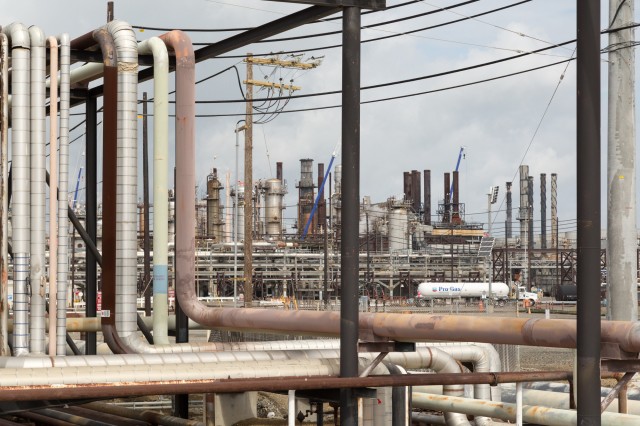Chevron officials said Friday they're studying the Planning Commission's decision.
"We're looking into all those things, understanding what impacts those conditions have on our operation as well as the impacts on the community," Chevron spokeswoman Nicole Barber said.
Chevron says the revised project would result in a “newer, safer, cleaner refinery” that upgrades old equipment and brings 1,000 construction jobs to a community with 12 percent unemployment.
The Richmond City Council gets the final say on the project in hearings that begin July 22.
"I think it's safe to say that we'll be working with city staff and City Council members in preparation for the meeting," Barber said.
Original post (Thursday, July 10):
A day after hearing from dozens of people about Chevron's $1 billion proposal to upgrade its refinery in Richmond, the city's Planning Commission is meeting again Thursday evening to hear more comment. Then it's expected to vote on whether to approve a 2,500-page environmental impact report and grant a permit to allow the project to go ahead.
About 130 people signed up to speak at Wednesday night's meeting at the John F. Kennedy High School cafeteria — both supporters of the company's refinery plan and critics who say the plan doesn't adequately address pollution and public health issues.
Before last night's meeting, Chevron employees passed out hundreds of blue-and-white T-shirts that said, "A modernized refinery. Another reason to be Richmond proud."
"We think that the modernization project reflects a win-win-win," Chevron Richmond Refinery spokeswoman Nicole Barber said. "A win for Chevron, a win for our workforce and win for the community." The company says the project will create 1,000 construction jobs.
Barber said the plan includes $30 million to mitigate greenhouse gases in Richmond, which, along with cap and trade credits, would result in no net increase of greenhouse gases. And Richmond wouldn't see any increase in toxic air particles.
But many Richmond residents say that doesn't go far enough and continue to push for changes in the project to restrict the amount of higher-sulfur crude oil the refinery will handle, and thus reduce emissions of greenhouse gases and other harmful pollutants.
"The baseline that they're using is already lethal to our community," said Andrés Soto, an organizer with Richmond Communities for a Better Environment. "We want to see actual reductions over time."
Richmond mayoral candidate Mike Parker told the Planning Commission that there is broad agreement that upgrades to the refinery should go forward. But Parker says there's room to improve Chevron's proposal.
"Richmond has dangerous air quality and high cancer rates and is designated as an impacted community," Parker said. "This is a chance to do something about that. Modernization should mean a reduction of toxic air contaminants, period."
The EIR includes a legally required "environmentally superior alternative" to the company's proposal. The alternative would reduce the amount of high-sulfur crude to be processed at the facility, as community activists want.
Jennifer Hernandez, an attorney retained by the city to work on the environmental impact report, said adopting the alternative would decrease pollutants, both greenhouse gas emissions and toxic particles, compared with Chevron's preferred plan. But either way, she said the plant would become much safer with the upgrades.
"We are getting a safer refinery from this project," she said. "There are 17 piping circuits in the crude unit that are being replaced with higher-caliber metal. There are lots more sensors. There are lots more inspection programs. There are lots and lots more oversight programs."
She added it was by far the most environmentally protective and safety conscious report she'd ever worked on.
Still, some want to see Chevron commit to more.
"Why would Chevron only upgrade one tug when it could upgrade six tugs in the next three years?" asked Jeff Killbreth, who spoke against approval of the original plan. "Why would Chevron not bring power to the wharf? Why can't Chevron dome nine tanks instead of three in the next three years? Why can't Chevron replace all of the carbon steel pipes that carry 450-degree oil in the next three years?"
